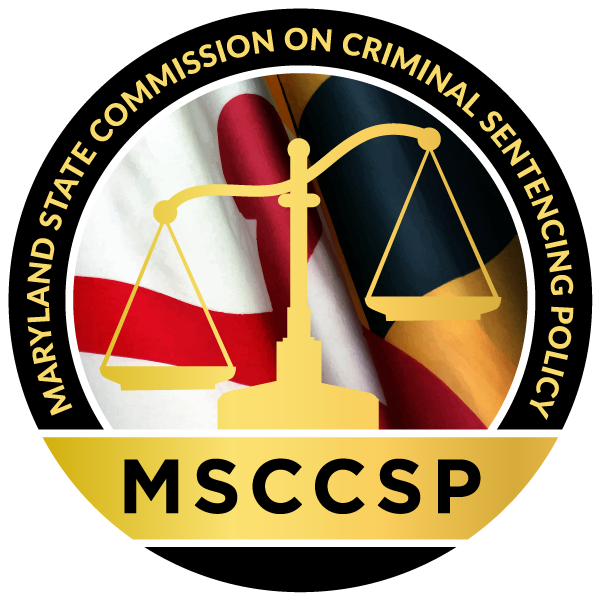Origin and Purpose
About the MSCCSP
The Maryland General Assembly established six goals to guide the work of the MSCCSP: (1) sentencing should be fair and proportional and sentencing policies should reduce unwarranted disparity, (2) sentencing policies should help citizens understand how long a criminal will be confined, (3) the preservation of meaningful judicial discretion, (4) sentencing guidelines should be voluntary, (5) the prioritization of prison usage for violent and career criminals, and (6) the imposition of the most appropriate criminal penalties.
The Maryland General Assembly authorized the MSCCSP to “adopt existing sentencing guidelines for sentencing within the limits established by law which shall be considered by the sentencing court in determining the appropriate sentence for defendants who plead guilty or nolo contendere to, or who were found guilty of crimes in a circuit court” (1999 Md. Laws, Chap. 648). The MSCCSP also has authority to “adopt guidelines to identify defendants who would be appropriate for participation in corrections options programs” (1999 Md. Laws, Chap. 648). The sentencing court is to consider these guidelines in selecting either the guidelines sentence for a defendant or sanctions under corrections options.
Core Functions
The responsibilities of the MSCCSP include the following core functions:
- Reviewing judicial compliance with the sentencing guidelines;
- Revising the sentencing guidelines in response to new and amended crime legislation;
- Reviewing the sentencing guidelines for consistency and adopting changes when necessary;
- Promulgating changes to the sentencing guidelines through the Code of Maryland Regulations (COMAR) review process and updating related training materials accordingly;
- Collecting, automating, cleaning, and storing guidelines data compiled via sentencing guidelines worksheets;
- Providing jurisdictions with status reports summarizing sentencing guidelines worksheet submission rates and identifying worksheets requiring action:
- Providing sentencing guidelines training to promote the consistent application of the guidelines and accurate completion of the guidelines worksheet;
- Responding to questions from practitioners and others regarding the guidelines;
- Providing legislators with fiscal estimate worksheets for proposed legislation affecting sentencing and corrections practice;
- Responding to requests for guidelines data and sentencing information; and
- Completing topical reports on sentencing trends across the state.
History
In the spring of 1996, the Maryland General Assembly created an advisory commission (Maryland Commission on Criminal Sentencing Policy) and charged it with the important task of evaluating the State’s sentencing and correctional laws and policies. Chapter 563 of the Laws of Maryland 1996 directed the advisory commission to make recommendations to the Governor and the General Assembly regarding key aspects of sanctioning policy in a report to be submitted on or before September 30, 1997.
In May 1999, the Maryland General Assembly created the Maryland State Commission on Criminal Sentencing Policy (MSCCSP) under Chapter 648 of the Laws of Maryland 1999, after the advisory commission recommended creating a permanent commission in its final report. In July 1999, the MSCCSP formally replaced its predecessor advisory commission and assumed the functions of the Sentencing Guidelines Advisory Board of the Judicial Conference, initially established in 1979 to develop and implement Maryland’s sentencing guidelines.




